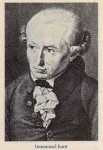This paper formulates the labor theory of property and democratic theory in the context of the Kantian personhood principle to treat other persons always as ends in themselves and never simply as means.
The Market Mechanism of Appropriation
This is a non-mathematical treatment of the fundamental theorem about the laissez faire mechanism for property appropriation.
Hume Implies Locke: Fundamental Theorem of Property Theory
The fundamental theorem for the invisible hand mechanism in the property system is that if Hume’s conditions are satisfied, then the invisible judge imputes in accordance with the Lockean responsibility principle. The paper mathematically formulates and proves the theorem using vector flows on graphs.
The Labor Theory of Property
This is a 1985 paper in a philosophical journal spelling out the labor theory of property.
Introduction to Normative Property Theory
This was my first (1972) publication in property theory. The normative part of the theory is essentially the same as what I would espouse today, but for the descriptive theory, I was still in the grip of the “fundamental myth” that the rights to the product are part and parcel of some existing property rights to some capital asset.
Rethinking Common vs. Private Property
The purpose of this paper is to suggest a rethinking of the common-versus-private framing of the property rights issue in the Commons Movement. The underlying normative principle we will use is simply the basic juridical principle that people should be legally responsible for the (positive and negative) results of their actions, i.e., that legal or de jure responsibility should be imputed in accordance with de facto responsibility. In the context of property rights, the responsibility principle is the old idea that property should be founded on people getting the (positive or negative) fruits of their labor, which is variously called the labor or natural rights theory of property.
Property Theory and Value Theory 1980
This is an old (1980) paper published in the Yugoslav journal Economic Analysis and Workers’ Management. It shows essentially all the ideas in the modern treatment of the labor theory of property (i.e., using the juridical principle of imputation) coming together by that date.




